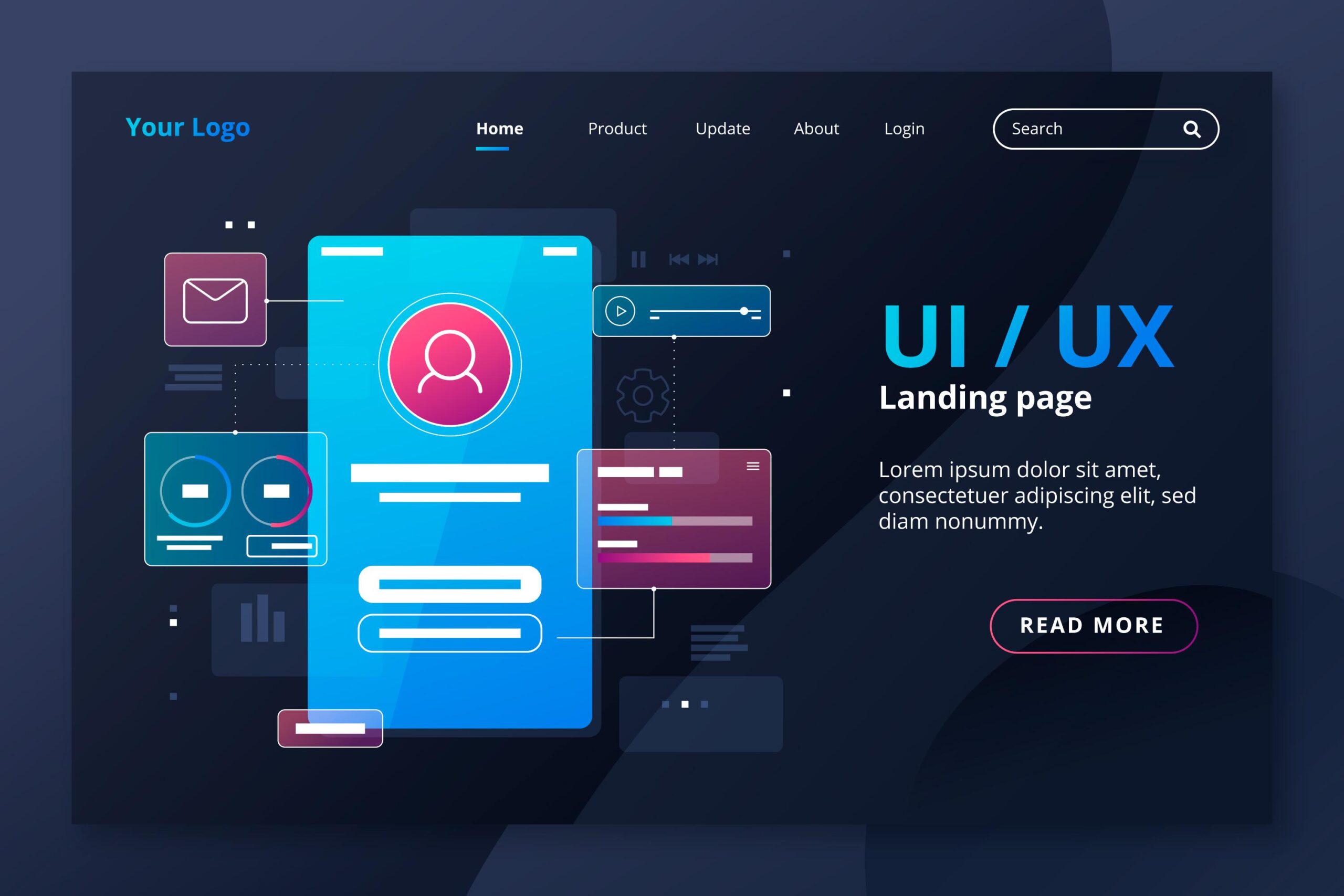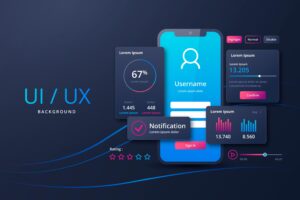
In an increasingly digital-first world, every click, swipe, and scroll counts; from mobile apps to e-commerce platforms, the performance of any digital product largely depends on the design-and this is the realm of UI/UX Design Specialization.
This specialization isn’t just about aesthetics; it’s about efficiently engaging and satisfying users through intuitive and user-friendly experiences. Any aspiring designer, or anyone interested in technology and the growth of UI/UX design, could share in opening one of the most coveted and sought-after careers in our creative-tech industry.
What is UI/UX Design Specialization?
The UI/UX design specialization is an academic or career track that prepares you to work in the design and enhancement of digital experiences.
UI deals with ‘interface’- How a digital product looks. It is concerned with colors, typography, layout styles, buttons, and icons- everything that the user can see and interact with on the screen.
UX, on the other hand, deals with ‘experience’-how the product feels, how easy it is to use, its logical flow, the satisfaction from use, and all the frictions that must be removed from interactions.
As a result, the UI/UX design specialization teaches you how to equilibrate form and function, ensuring that the product is not just something a user would use but something they would enjoy using.
Why Specialize in UI/UX Design?
The demand for skilled UI/UX designers is booming and is not forecast to slow down anytime soon. Companies know that bad design repels users, while good design can turn casual users into loyal customers.
There are several reasons why you should think about specializing in this field:
- Widespread demand: From tech to healthcare, education to e-commerce, UI/UX designers are needed across pretty much all industries.
- Fascinating pay scale: Owing to their contribution to the success of the business, UI/UX roles usually offer salaries well above the average.
- Remote opportunities and worldwide work: Many companies now hire designers remotely, which increases your reach worldwide.
- Innovative yet technical: You will have a chance to express and manifest your creativity while solving important real-life issues.
What Will You Learn in a UI/UX Specialization?
Specialization in UI and UX gives you a wide variety of skills in becoming a complete designer. User research, persona generation, wireframing, prototyping, and visual design principles are some core topics. Usability testing, responsive design, accessibility standards, and tools like Figma, Adobe XD, and Sketch are some of the topics covered.
You would acquire technical competencies and various soft skills, including that of empathy, communication, and problem-solving. These are vital for effective collaboration with users, developers, and clients.
Career Paths After UI/UX Design Specialization
UI/UX specialization doesn’t lock you into one job. It opens the door to various roles within design and tech.
Here are some popular job titles you can aim for:
| Role Title | Primary Focus | Average Salary (USD/year) |
| UI Designer | Visual design of interfaces | $65,000 – $90,000 |
| UX Designer | User journey, usability | $70,000 – $100,000 |
| Product Designer | End-to-end product design | $80,000 – $120,000 |
| Interaction Designer | Motion and interaction flow | $75,000 – $105,000 |
| UX Researcher | User testing and data analysis | $70,000 – $110,000 |
| UX Writer | Microcopy and content flow | $60,000 – $95,000 |
Your earning potential increases with experience, specialization, and the ability to lead design strategy within organizations.
How to Start Your Specialization in UI/UX Design

With a plethora of online platforms and courses, getting started has never been easier. You don’t explicitly require a degree; there are plenty of self-taught designers or short-course certification designers today. Here are the paths recommended:
- Online courses on platforms like Coursera, Udemy, and LinkedIn Learning
- Boot camps like Springboard, CareerFoundry, and Designlab
- University diplomas in human-computer interaction (HCI) or digital design
- Working on real-world projects like freelance work, internships, or passion projects to complement your portfolio
The key is practicum. The more you design, test, and iterate, the better you get.
UI/UX Design in the Real World
I assume that the last app you deleted would be either slow, perplexing, or clumsy-looking. Such undesirable qualities are exactly what UI/UX designers stand against. Every smooth login screen, intuitive checkout process, or clean website layout you enjoy was probably created by a talented UI/UX designer. Therefore, if you feel a special bond between psychology, technology, and creativity, this specialization could be for you.
Final Thoughts
This UI/UX design specialization is not just a career; it is a skill set that enables a person to create and shape the digital space. Since people are spending more time on screens, it increases the need for meaningful, beautiful, and user-centered design. Whether you want to work for a big tech company,freelance from home, or even create a new product, it starts by understanding the user and designing for them, which is precisely what a UI/UX Design Specialization will teach you. So, are you ready to turn ideas into interfaces and clicks into connections?
FAQs
Do you really need a degree for UI-UX designing?
No, many designers are self-taught and take courses or go for boot camps to learn.
What’s the difference between UI and UX?
UI stands for how something looks; UX translates to how it works and feels to the user.
How long does it take to specialize in UI/UX?
Consistency in studies, plus practice would help you acquire a deep foundation in 3 to 6 months.
What tools should I learn initially?
Learn designing with Figma or Adobe XD and cooperate/research with Notion or Miro.
Is UI/UX a good long-term career?
Absolutely. The tech world is expanding really fast, and UI-UX skills will continue to be in great demand for years to come.